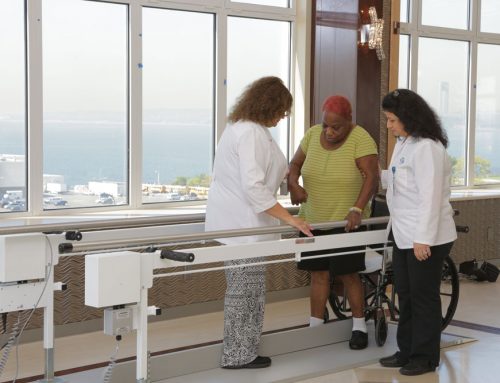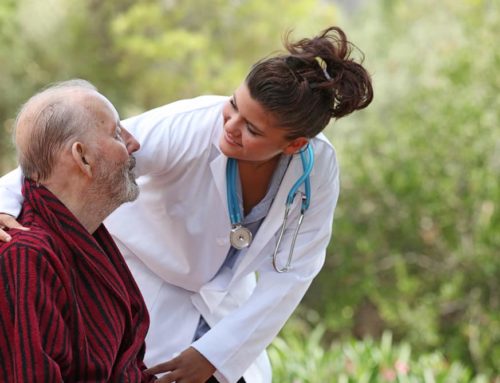Heart attacks caused by blocked arteries are a leading cause of death. Heart blockage symptoms may be a warning sign of a heart attack. While there is no cure for heart attacks, it’s useful to recognize the early signs of heart failure.
What follows is general guidance on what you might experience if you have a heart blockage. At the slightest hint of heart trouble seek medical advice. If you act early, treatments, cardiac care and rehabilitation can prolong life.
Symptoms and Signs of Heart Blockage
People with heart trouble due to blocked arteries may experience a range of different symptoms. These will depend on the severity of the blockage. However, the classic symptoms of heart blockage are palpitations, dizziness, as well as sweating. In severe cases you might feel a crushing pain in the chest, as well as in the shoulders and arms.

Older people with coronary heart disease are at greatest risk of blocked arteries. These are due to the gradual build-up of fatty substances (plaque) in the arteries which prevent normal blood flow.
Minor symptoms of heart blockage include irregular or skipped heartbeats, shortness of breath and chest tightness. Other symptoms may include pain or numbness in the legs or arms, as well as neck or throat pain.
Can it be cured?
Heart disease and blocked arteries cannot be cured but stents and pacemakers can prolong life. Stents can be inserted into a blocked artery to improve blood flow. Pacemakers – very common these days – can regulate heartbeat and prevent heart attacks.
Such surgical interventions can be the difference between life and death. But they need to be combined with cardiac care and rehab to further improve quality of life and life expectancy.
Examples of cardiac rehab include physical therapy and exercises as prescribed by your doctor or therapist. These may include moderate physical activity such as brisk walking or swimming. The aim is to improve circulation and reduce the risk of heart blockage.
Breathing exercises and activities such as yoga can also be highly beneficial. Their impact is not just physical. They can calm you down and help relieve stress, a major contributor to heart attacks.
Is it serious?
Heart trouble of any kind is always serious and requires immediate diagnosis and action. This is particularly the case if you have other health conditions such as neurological disorders, diabetes or are overweight.
A healthy diet, taking part in enjoyable stress-free activities, and light or moderate exercise are key to preventing heart trouble. If you feel any of the symptoms of heart blockage, be sure to seek urgent medical advice. Remember that you should not delay with heart issues.
When should cardiac rehab begin?
You can start cardiac rehab right after you leave the hospital. It is a supervised rehabilitation program that includes exercises and counseling. Contact us or walk in if you need cardiac care and rehabilitation and also live in Brooklyn NY.
This content comprises informative and educational resources only and can not be considered as a substitute for professional health or medical guidance. Reliance on any information provided in this article is solely at your own risk. If you have any inquiries or apprehensions about your medical condition or health goals, talk with a licensed physician or healthcare provider.






Does winter weather lead to chest pain
What is a sinus anterior infract mean
I can’t do a stress but one was suggested by ER MD that was some kind of drug that is used via injection or IV that mimics heart activity as if you were doing the physical test. Is it safe if I have been having mild chest pain which I use nitroglycerin to ease?
I have been getting knots all over my right arm up to shoulder. Sometimes da pain is so dramatic that I have to massage them out the pain starts from my upper arm to my wrist. I can’t move my arm at times cause of knots. Also it just started earlier a pain in my left chest it’s a knot cause I can feel it and it hurts. What are those knots
I exercised daily average 6km. Can I still get a heart blockage. I was requested by my health care provider to go for an *echo test. Thanks